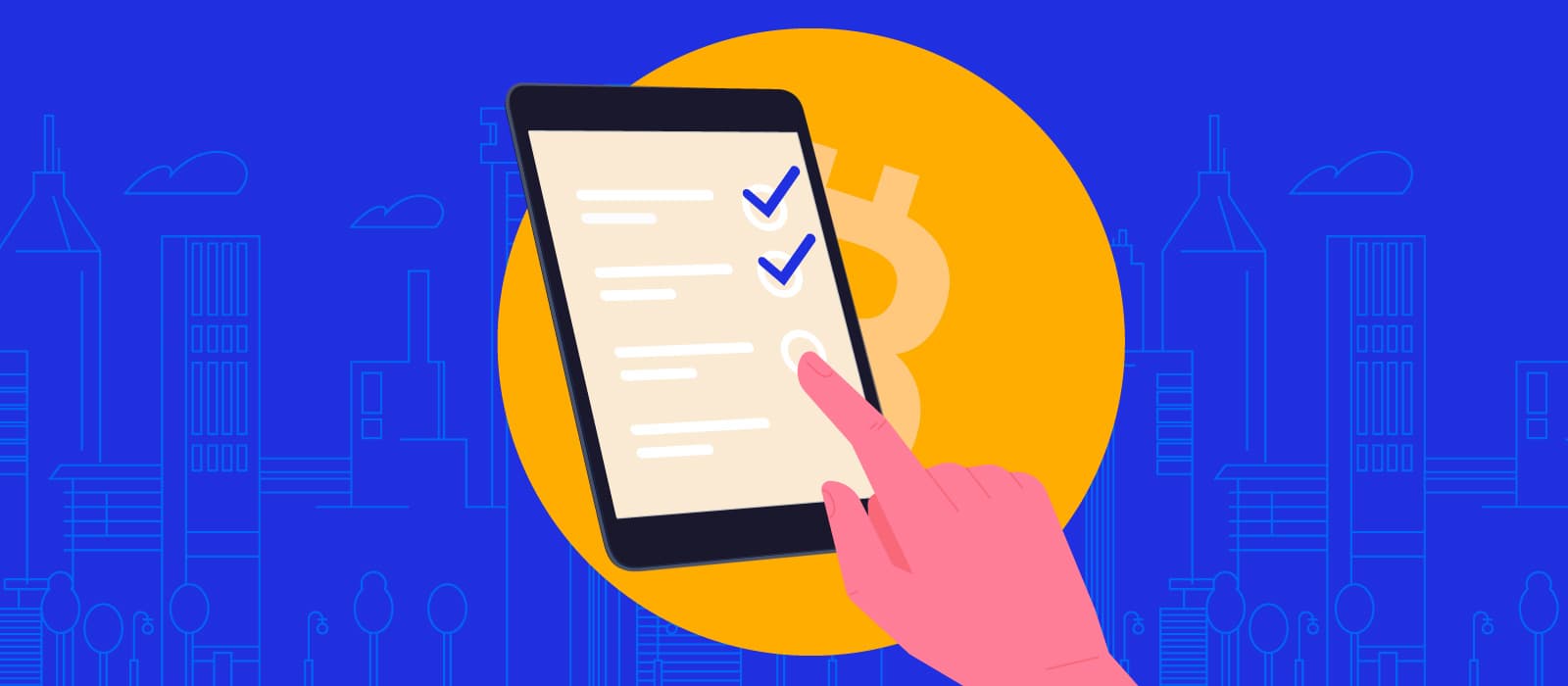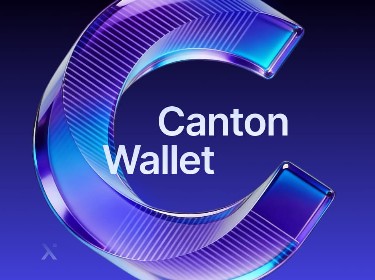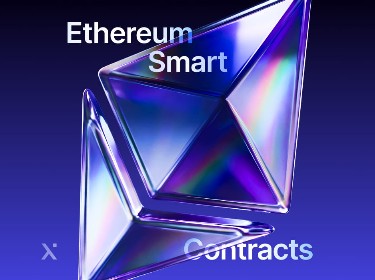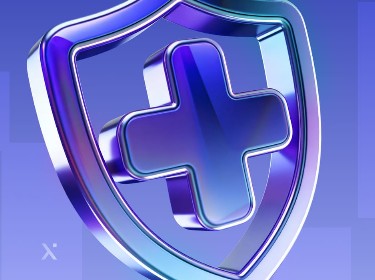Decentralized autonomous organizations (DAOs) are on the crest of the wave and have breathed new life into multiple spheres. But what are they and who can benefit from their adoption?
In our technology-dependent world, blockchain has become a real go-to tool. It boasts countless use cases and applications and has carved a niche for itself across a wide range of industries, including supply chain, healthcare, retail, real estate, social media, and the list goes on and on.
The statistics reveal that the overall spending on blockchain solutions is projected to reach $6.6 billion in 2021 and a staggering $19 billion by 2024, which is undeniably impressive.
Just like doting parents, we at PixelPlex have been keeping an eye on blockchain and helping clients achieve groundbreaking results using the technology. Witnessing how it’s been growing and developing, we are extremely proud of the advances that it’s made so far!
Now lyricism aside — let’s get down to business and be more Sirius serious.
One of the most outstanding successes that blockchain has notched up is the introduction of DAOs — decentralized autonomous organizations. These apps remove the need for centralized coordination and manual intermediation, and bring about high levels of transparency, full automation and cost savings as well as contributing to fair and inclusive decision-making.
Read on to get detailed insights into decentralized autonomous organizations, their functioning principles as well as their pros and cons. Also, discover some of the most popular DAOs used in various markets.
See how our smart contract development & audit services can take your business to a whole new level
This article is part of our larger series dedicated to DAOs. To explore this topic in greater detail, here’s the list of articles we recommend:
Top DAO Use Cases Beyond Finance and Most Prominent DAO Examples
What Are the Most Effective DAO Governance Models and How to Choose the Right One? A Beginner’s Guide
How to Create a DAO in 8 Steps
What is a DAO? Brief explanation
A decentralized autonomous organization is a blockchain-powered entity that functions without any centralized authority or intermediaries. The control is spread out among all participants, who can use governance tokens to vote on various rules or changes in the DAO. Their voting power is generally equivalent to the number of tokens they possess.
All the rules of an organization are enshrined in self-executing smart contracts, which are commonly referred to as the backbone of a DAO. Once the smart contract has been published on Ethereum, those rules are impossible to change except by a vote.
Given that DAOs are open source, all their activities and transactions are recorded on a secure blockchain and can be viewed by any DAO participant.
DAOs represent the novel concept of digital democracy, enabling literally all stakeholders to engage with the organization’s activities and take part in making vital decisions. They are able to properly operate without any form of central authority which can sometimes impose their own views, turning a blind eye to the opinions of other members.
DAOs are truly groundbreaking and have the capacity to profoundly shape the way organizations are governed. So far, they have been successfully embraced in areas such as grant funding, pool investment, collecting, charitable funds, worker collectives, freelance networks, etc.
In general, DAOs create unique funding opportunities and promote democracy, which is why it’s safe to say that many more entities from other areas will soon decide to shift to a decentralized way of managing their businesses.
What is The DAO? Clearing up the confusion
![]()
The DeFi boom in 2020 has led to the increased popularity of DAOs. These days a large number of yield farming and decentralized exchange (DEX) platforms heavily rely on the functioning mechanisms of decentralized autonomous organizations.
Before that, though, DAOs faced a lot of challenges alongside a lion’s share of criticism, which was due to the infamous The DAO hack.
The DAO is the name of the first decentralized autonomous organization. It was launched in April 2016 by German startup Slock.it. The DAO was made up of complex smart contract mechanisms that were running on the Ethereum blockchain.
Initially, The DAO was highly popular and even managed to raise over $150 million. Its tokens were sold as an initial coin offering (ICO) and granted users with an ownership stake and voting rights within The DAO.
Unfortunately, shortly after its launch, The DAO was in tatters. It was exposed to the largest hack in the history of cryptocurrency, during which about ⅔ of the funds were drained from it (yikes!).
This crypto tragedy ended up with the Ethereum network being hard forked to move the funds located in The DAO to a recovery address where they could be exchanged back to Ethereum by their original owners. However, those who didn’t welcome the hard fork went on using the original Ethereum blockchain that is now called Ethereum Classic.
Read the full story of Ethereum and Ethereum Classic and a comparison between them here
The core constituents of a DAO
It’s essential to point out that DAOs’ underlying mechanisms can vary across different blockchain projects. However, there are three key stages that any DAO is required to undergo to be properly launched. These are smart contract integration, token creation, and deployment. Just as importantly, smart contracts are the major plank of all DAOs, which is why it’s crucial to ensure their smooth and proper implementation.
Smart contract integration
First of all, it is necessary to define and encode a DAO’s rules in a series of smart contracts.
Careful smart contract setup is pivotal to establishing a sustainable and flexible DAO. Otherwise, mistakes made in the beginning can derail the entire project.
Token creation
Smart contracts are not the only element needed for the proper functioning of a DAO. The development of native tokens also needs to be given due consideration.
When developing smart contracts, make sure that they will enable the creation and distribution of native tokens that will be used in voting mechanisms and employed to incentivize particular activities within the DAO.
Here it’s worth bearing in mind that there are a lot of things that can be voted on in a DAO, with the most common being:
- Outside expenditures made or planned by the organization
- Choice of products that will be on a DAO’s roadmap
- Different protocol upgrades and new technological implementations
- Which members/contributors can be added to the network
- How potential profits will be divided among all the DAO’s members and contracted agents.
DAO deployment
The deployment of a DAO needs enough funding. If this condition has been fulfilled, then all decisions proposed by DAO members will be made via a consensus vote.
Consequently, all token holders automatically become stakeholders who have the right to put forward proposals concerning the DAO’s future work and the way its funds should be allocated.
The smart contract architecture should foresee a properly defined token distribution policy and consensus mechanism. In this way, the DAO’s participants will have all the conditions in place needed for the successful development of the entire DAO network.
See what this UTXO-based blockchain and dApp development platform is capable of
Delve into further details about DAO and its operations by watching our informative video. Within it, you’ll discover the essential advantages of creating a DAO and its role in generating income. Additionally, you’ll gain insights into the crucial steps involved in setting up a DAO.
DAOs vs centralized organizations: highlighting the differences
Decentralized autonomous organizations are undeniably a revolutionary notion. The principle of total disintermediation that lies at the core of DAOs has appealed to a number of individuals and entities worldwide.
However, this is not the only way in which DAOs differ from traditional organizations. Take a look at the table below to compare decentralized vs centralized organizations.
| DAO | Centralized organization | |
| Governance | Democratic governance, no hierarchy | Top-down management. The central authority has the right to make a final decision |
| Activity | Totally transparent and public | Normally private and limited to a certain group of people |
| Trust | Cryptography (provided by blockchain) | Based on the experience and relationships between members of an organization |
| Voting | DAO participants are always required to cast their votes for any changes to be implemented | Changes can be demanded from one particular party. Voting may be offered (sometimes) |
| Vote count | Votes are counted automatically, without intermediaries | If voting has been permitted, votes are counted internally and the outcome is handled manually |
| Operational costs | Low | High |
| Geographical dispersion | Anywhere | Single location |
Lowdown on the advantages of DAOs
The famous DeFi boom resulted in an increase of almost 1200% in dApp volume. From that moment on, DAOs, too, have been gaining traction as users globally have recognized their potential alongside multiple benefits such as high transparency levels, fair access and inclusion, and full automation.
High transparency levels
The greatest thing about DAOs is that they are totally transparent. Voting, funding decisions, and other activity within the DAO can be viewed by all participants, who have equal access to the DAO. Everything that takes place in a DAO is automatically recorded on an immutable and secure blockchain that guarantees the greatest protection of all files.
Fair access and inclusion
A large number of organizations have a top-down structure, which means that oftentimes only the boardroom is at the helm, while proposals and ideas coming from the grassroots are given the silent treatment.
But this is not the case with a DAO. All participants can have their say and a chance to shape the way the organization is run. Stakeholders of all levels, regardless of their position in the company, are able to submit their proposals and vote on changes proposed by others.
Thanks to a DAO’s autonomous structure, there are no squabbles or power plays.
Democracy at its best, so to speak.
Full automation
Smart contracts allow for the total automation of processes taking place within the DAO.
The DAO’s rules are normally embedded and defined by smart contracts that are responsible for guiding participants’ behavior and executing automated consensus. The best thing here is that no third party is needed to fulfill the procedure. Consequently, a DAO contributes enormously to the optimization of network decision-making and helps to lower management costs.
Introduce yourself to Echo — all-in-one dApp development platform and ecosystem
What challenges are DAOs facing?
![]()
For every plus there is a minus, and DAOs have some drawbacks as well. It may suffer from delays in decision-making, complicated bug fixing, and legal issues.
Delays in decision-making
The absence of a central authority can have an adverse impact on decision-making within the DAO network. This happens when token holders (either intentionally or not) take too much time to make decisions. These delays cause issues and impede the work progress of the entire decentralized autonomous organization.
Complicated bug fixing
Due to the complexity of a DAO’s code, it may be difficult to fix any occurring bugs.
Once the code has been uploaded, it’s next to impossible to alter it. Thus, if a bug has been spotted, the entire code will have to be rewritten from scratch.
Bear in mind that the infamous DAO on Ethereum hack was caused by vulnerabilities in its code base. To prevent this from happening and ensure the correctness and reliability of your code, it’s highly advisable to turn to a team of professional developers who will take care of writing high-quality, reliable code.
Legal issues
The precise legal status of decentralized autonomous organizations is generally unclear and differs from jurisdiction to jurisdiction.
In addition to this, given that DAOs can be dispersed across the globe, the arising legal issues could stem from different regional laws as well as cross-border contractual relationships.
However, this hurdle is possible to overcome if more jurisdictions take a welcoming stance towards DAO adoption.
For example, on July 1, 2021 Wyoming (US) became the first state to recognize DAOs as a legal entity (a distinct form of limited liability company, to be exact). The more countries and states introducing themselves to the rich gamut of opportunities provided by DAOs, the clearer DAOs’ regulatory status will become.
Overview of some of the most popular DAOs
![]()
To date, decentralized autonomous organizations have been successfully implemented across multiple sectors, including supply chain, data and asset management, healthcare, and the Internet of Things (IoT). However, it’s true to say that DAOs are particularly relevant to the DeFi area. They assist crypto traders in carrying out trades with cryptocurrencies and can be employed in some DeFi use cases, including crypto lending and yield farming.
Although the first DAO project (The DAO) wasn’t a success, it didn’t stop the initiation and development of other DAOs, which have numerous advantages over existing solutions.
Currently, the entire DAO ecosystem has a plethora of DAO platforms and warmly welcomes new members into its squad.
Our team of expert software developers at PixelPlex took a break and picked up an abacus and started counting how many DAOs have been developed so far. Sure thing, we lost count. But.. chin up! We decided to highlight the most prominent examples of DAO platforms and DSaaS (DAO Software-as-a-Service) providers. Check them out!
DAOstack
Launched in 2018, DAOstack is an open-source DAO platform that enables the creation of decentralized apps (dApps), DAOs, and a number of DAO tools. It offers a modular smart contract framework, a javascript developer environment, and a friendly UI that empowers literally anyone to create and/or become part of a decentralized organization.
DAOstack has been specifically designed to support a global collaborative network and help establish organizations for any type of collective work including:
- Collaborations to produce an outcome (climate initiatives, film projects, collaborative news networks, open-source software projects)
- Asset management (venture, pension and charitable funds, insurance networks)
- Curation networks (restaurant and hotel guides, website listings, article and video feeds)
DAOstack also has its own native token called GEN. It provides platform users with a core utility within decentralized organizations and allows for efficient scaling.
Among the most prominent decentralized autonomous organizations developed on DAOstack are DXdao, necDAO, dOrg, Prime DAO, and Genesis Alpha.
Aragon
Aragon is a suite of applications and services for creating and managing decentralized autonomous organizations on the Ethereum blockchain and its own Rinkeby network.
The software provided by Aragon can be used to set up clubs, nonprofits, and other organizations that collectively manage finances as well as decision-making via its decentralized apparatus. Another great thing about Aragon is that it’s highly scalable and allows users to implement a lot of advanced features.
According to the Aragon community, more than 1,700 organizations have been built on Aragon so far. The platform has also been used in the development of projects such as Curve, Decentraland, and PoolTogether with an overall project market capitalization of about $3 billion.
Aragon itself consists of the Aragon Client (a special tool for creating and participating in DAOs), the Aragon Network (a DAO made up of a large network of DAOs), the Aragon Association (a nonprofit organization responsible for distributing the proceeds generated by Aragon token sales), and Aragon Court (a system for resolving disputes).
As well as this, Aragon has two native tokens — ANT and ANJ — used for participating in the management of the Aragon Network DAO and the dispute resolution system.
MakerDAO
MakerDAO is commonly regarded as one of the largest decentralized autonomous organizations. It operates as both an autonomous, Ethereum-based lending platform and DAI coin provider. MakerDAO uses the DAO framework for governance decisions and to support operations within the entire decentralized lending system.
As well as this, MakerDAO deals with developing technology for borrowings and savings. It has also built a special protocol that enables anyone with ETH and a MetaMask wallet to lend DAI stablecoins. When users lock up some ETH in MakerDAO’s smart contracts, they are able to produce a particular amount of DAI: the more ETH that’s locked up, the more DAI will be generated.
Apart from DAI, there’s also the Maker token (MKR), created by MakerDAO with the purpose of providing stability to MakerDAO’s DAI token and enabling proper management within the Dai Credit System.
MakerDAO is commonly referred to as one of the flagship projects of the DeFi movement because of the multiple high-profile partnerships that contributed to its wider adoption.
Moloch DAO
Moloch DAO has gained a lot of prominence due to its principal initiative to help fund the development of Ethereum 2.0. This DAO relies on relatively simple smart contract functionality which helps diminish the number of potential attacks. It’s also worth noting that these smart contracts have been further forked to launch many other DAOs, including MetaCartel Ventures and Marketing DAO.
Moloch DAO also awards grants to those who contribute to the further advancement of the Ethereum ecosystem. Another curious feature of this DAO is its built-in “rage-quit” mechanism. This means that a Moloch member can literally rage quit and withdraw their tokens if they disagree with a certain community decision.
Since its launch, Moloch DAO has managed to raise over $1 million of contributions from some of Ethereum’s largest companies and even community members.
Colony
Colony is a protocol which helps create decentralized autonomous organizations via open source, Ethereum-based smart contracts. It also offers its users a general purpose framework that assists in performing the key functions that organizations sometimes cannot manage on their own, including handling of ownership and authority as well as financial management.
The Colony Network allows for the establishment of decentralized autonomous organizations, supplying them with the necessary infrastructure. It also enables participants to effectively manage their funds with the help of powerful on-chain governance and decision-making mechanisms.
The Colony Network has its own CLNY native utility token that delivers the following rights to its holders:
- The right to take part in the internal reputation mining processes of the network
- The right to join the management process of the network
- The right to claim a share of the network’s revenues
On the whole, Colony is a highly efficient and high performing platform designed for community collaboration. It simplifies the decision making and financial management processes.
Wrapping up
Despite the fact that the first DAO fell flat, this didn’t stop the initiation and deployment of hundreds of other DAO projects. The core principle of decentralization has sparked interest across an extensive range of industries and has proven to be a real driving force behind innovation and improved efficiency.
Decentralized autonomous organizations are believed to play a pivotal role in our future society, bringing about better and fairer management alongside greater transparency. Through the wisdom of the crowds, it’s possible to make prompt collective decisions and improve the functioning of organizations.
If you wish to create your own robust DAO from scratch, then you’d be well advised to delegate the task to our DAO development company and expert dApp developers. They will ensure the smooth development, deployment, and support of your application and can also build a sophisticated DLT ecosystem around it.
A decentralized future is just round the corner. Start shifting onto the new rails right now and be in the right place when it arrives.




